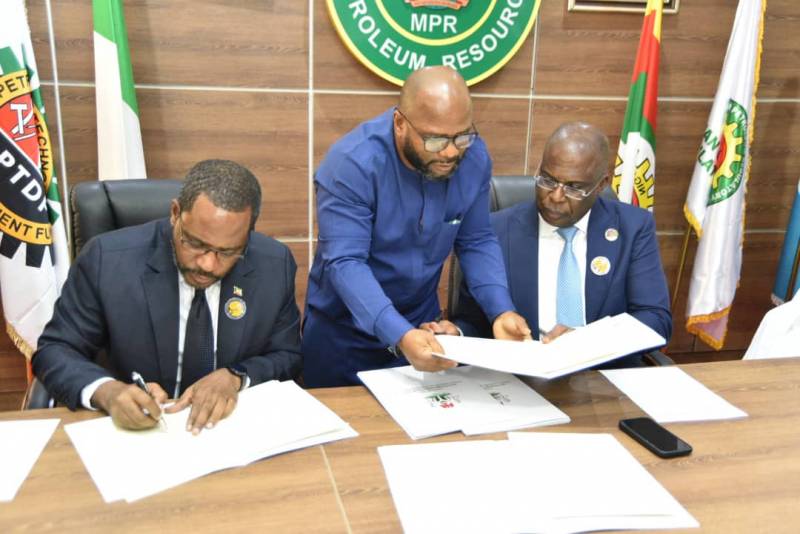The Government of Equatorial Guinea has termed the successful Memorandum of Understanding (MoU) between the Federal Government and the Government of Equatorial Guinea on natural gas delivery as both groundbreaking and breaking the barrier in a rare diplomatic accord.
Recall that Nigeria recently inked an MoU with Equatorial Guinea at the fifth Nigeria International Energy Summit 2022. According to the terms of the deal, Nigeria would provide gas from offshore fields to the Gas Processing Plant in Punta Europa, Equatorial Guinea.
"As the global geopolitics of natural gas changes, and within the framework of the world shifting to a reduced carbon future," stated Gabriel Mbaga Obiang Lima, Equatorial Guinea's Minister of Mines and Hydrocarbons footprint, it was imperative that we think differently on how to remain an important player in energy markets.”
He pointed out that the strategic collaboration broke down geographical boundaries and allows delivery of gas from Nigeria to Equatorial Guinea’s Punta Europa facilities, extending their life and providing access to the regional and global energy markets.
The MoU will allow Nigeria to profit from its 200 trillion cubic feet of natural gas reserves. In turn, the agreement will secure a reliable supply of gas for Equatorial Guinea's Gas Mega Hub project, which aims to commercialize both domestic and regional gas resources while establishing Equatorial Guinea as a regional hub.
"Nigeria has tremendous gas resources, a large portion of which is offshore, and bringing them to market will need unprecedented investment in infrastructure," says Timipre Sylva, Nigeria's Minister of State for Petroleum Resources. This partnership will allow much of the stranded gas to reach the global gas market in as little as 18 to 24 months, making it the shortest time to market for a Nigerian offshore gas asset.
Meanwhile, with Equatorial Guinea’s infrastructure and facilities being instrumental to the development, the construction of a potential gas pipeline linking the two markets could be considered in the future.
According to the United Nations COMTRADE database on international trade, Nigeria's exports to Equatorial Guinea reached $375.76 million in 2020.
This is the kind of desired industrialization that has long eluded Nigeria. "Now, however, the Nigerian government aims to set a new route for its gas sector through a new effort known as "The Decade of Gas," according to the article.
"A number of regulatory reforms are also being undertaken, the most recent of which is the PeInterbank troleum Industry Act, which was recently adopted" (PIA). "When natural gas was discovered in Mozambique, the government and other private sector entities didn't rush to put shovels in the ground.
"The institution was the main focus of the necessary legislative frameworks, required to attract and retain private capital, given the “zero”-gas development experience of that nation.
"In contrast, Nigeria, which holds Africa's greatest natural gas reserves, has been pushing its natural gas sector under outdated law that does not recognize natural gas as a resource in its own right."
"The new Act appropriately allows for the healthy and sustainable development of the country's natural gas resources, which are ranked ninth in the world and were previously viewed as a byproduct of oil," according to the report.




